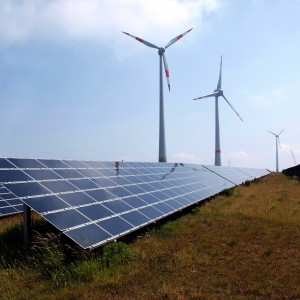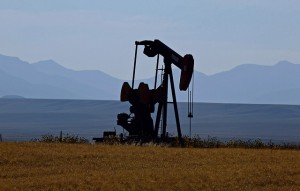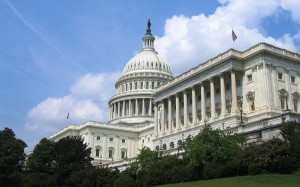8 item(s) were returned.
Editor
Bloomberg's First Word Energy
Over the course of his first weeks in office, President Trump has outlined an America-first energy policy that appears to mean essentially one thing: More U.S. oil production. His policies are decidedly aimed at boosting oil production: green-lighting more drilling on federal lands, building more oil pipelines, and rolling back rules that harm the oil industry. But America First doesn’t necessarily mean a focus on American oil. From a different perspective, the Fuel Freedom Foundation aims to boost the American economy and cut its dependence on OPEC by expanding the fuels available for automobiles. Fuel Freedom, argues for “ending our… [more]
View InsightProfessor of Physics
City College of the City University of New York
Encouraging energy R&D, substituting solar, wind, and safe nuclear energy for fossil fuels is a big plus for safeguarding the global environment. But it is also a vital step in fighting terrorism. For many decades, the Organization of Petroleum Exporting Countries, or OPEC as the international cartel is commonly known, successfully regulated world oil supplies and thereby the price of a barrel of oil on the international market. By doing so it filled the national treasuries of Saudi Arabia, Iran, Iraq, Venezuela and nine her nations across the globe, giving them an outsized role on the stage of world affairs,… [more]
View InsightCrude oil prices have dominated headlines and industry attention over the past year. In 2014 and continuing in 2015, the Organization of the Petroleum Exporting Countries (OPEC) agreed to unconstrained output for it 12 member countries, resulting in a dramatic increase in global oil supply. Meanwhile, China and Europe’s demand for oil has remained relatively steady. In addition, U.S. domestic production nearly doubled since 2008, decreasing domestic imports and leaving more oil on the global market. As a result, oil prices fell from $90 per barrel in 2014 to $46 per barrel today and projections indicate prices between $30 and $60 per barrel… [more]
View InsightLead Senior Economist
Environmental Defense Fund
What determines the cost of a ton of coal? Is OPEC an oligopoly? Should we subsidize low-carbon energy or tax fossil fuels? Do Prius owners drive more? These are among the questions I cover in my Economics of Energy class. I’ve taught this class at Columbia University’s School of International and Public Affairs for the past five years. I hope to receive your feedback on how to improve this course. The course has two goals: to provide a set of tools to approach these and many other fundamental questions in energy economics, and to do so in plain English. Last… [more]
View InsightOil prices have declined sharply over the last six months, with the U.S. benchmark closing below $50/barrel on Jan. 6th, for the first time since 2009. A number of factors have contributed to this fall in prices, including an increase in U.S. tight oil production and decreased global demand. Beyond the immediate financial benefits of lower fuel prices for U.S. consumers, the falling price of oil raises several policy questions. Impacts on financial markets and geopolitical tensions that could be exacerbated if the low price persists are only a few of the potential issues U.S. policymakers may find themselves dealing… [more]
View InsightClarence Efroymson Professor of Economics
Butler University
As I explain in U.S. Energy Policy and the Pursuit of Failure, bipartisan compromise is possible and has led to policy change in the past. However, that change has almost always been bad for the country. Bipartisanship has given us ill-conceived and wasteful programs for synthetic fuels, breeder reactors, “super cars,” windmills, and ethanol. The problem runs much deeper than the current President or the balance of parties in Congress. For the past forty years, U.S. energy policy has been premised on false concepts of markets, government, technology, and history. The basis for this policy paradigm goes something like this: The… [more]
View InsightLast week Senator Lisa Murkowski (R-AK), the senior Republican on the Senate Energy and Natural Resources Committee, published a blueprint for energy policy, titled “Energy 20/20: A Vision for America’s Energy Future.” The blueprint offers ideas to “align federal policy with… our national interest to make energy abundant, affordable, clean, diverse, and secure.” Among the main ideas in Sen. Murkowski’s blueprint are: Establishing a national goal to become independent of OPEC imports by 2020 by increasing domestic oil, biofuel and synthetic fuel production. Approving the Keystone XL pipeline. Opening the Arctic National Wildlife Refuge to oil and gas drilling and… [more]
View InsightThis month OPEC, the intergovernmental affiliation of twelve oil-producing countries, released two different estimates for its members’ monthly crude production. The first estimated 31.2m b/d in February, and relied on secondary sources, as OPEC estimates have traditionally done since 1986. The significantly higher second estimate of 32.1m b/d relied on direct internal reporting from OPEC member countries. The estimates’ disparity casts doubt on the accuracy of OPEC’s reporting. OPEC accounts for 44% of world oil supply. In an article for Platts, Richard Swann explains “OPEC crude production estimates are undoubtedly among the world’s most important pieces of oil market data.… [more]
View Insight





